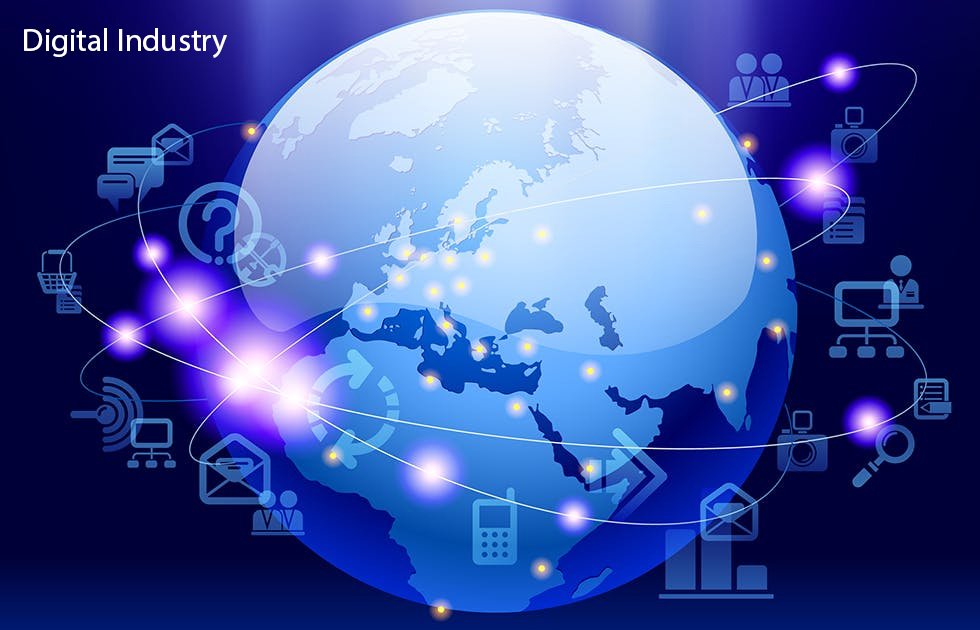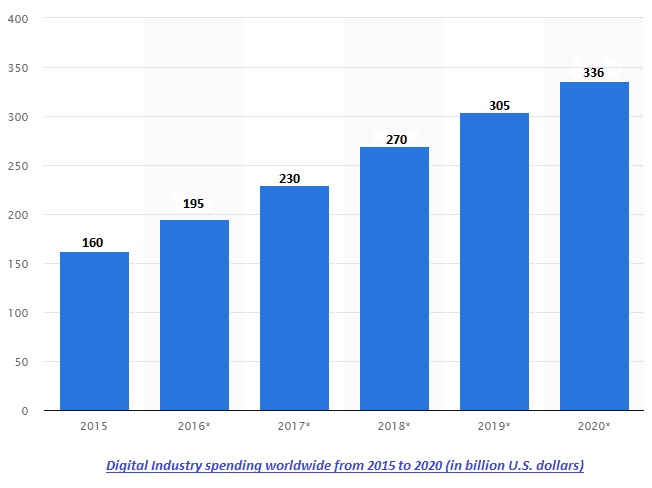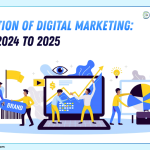A Glimpse of Digital Industry

Introduction to the Digital Industry
Digital Industry – A innovative term which denotes the digital innovations and its movement with the due course of time. Simplifying it may sound like industry running Digitally. Digitally is the process or agenda mainly which denotes the work going online or in generic term “virtual”.

So with the growing age technology is developing to a great extent. So with the growing technology, its uses are getting addictive with humans evolving the whole crowd go technical. Technological enhancement on the other side is a positive side of human evolution which can include behavior. Also, as deceptive changes. Digital technology is allowing us to meet the digital world in an innovative manner which includes digital promotion, use of artificial intelligence, UI, UX, etc.
Of course, the term “digital” itself has a wide range of applications and definitions. For some businesses, this entails adopting software and technology as well as becoming paperless. Others will see it as a reason to place more of emphasis on cutting-edge technology like cloud computing, big data analytics, and machine learning.
This digital transition is being embraced by a variety of industries. eLearning, healthcare, and supply chain are all beginning to advance, while sectors like banking and eCommerce have already made significant achievements.
Rising Side of the Digital Industry
Digital Industry is growing exceptionally well than other sector as its relatively proportional to digital technological enhancement. People nowadays are more intruded into mobile, tablets & PC ads the e-commerce, and online markets are increasing the digital innovations to the next level where it’s being a trendsetter for the industries.
Given the nature of digital technology, it makes sense that the industry will experience tremendous growth in the years to come. Between now and 2025, the worldwide market for digital transformation is predicted to expand by around 16.5%. (at Compound Annual Growth Rate).
According to estimates, the sector is currently value at $469.8 billion on a global scale. This is anticipated to rise to $1,009.8 billion by 2025. Technology like the Internet of Things, cloud computing, and mobile devices and applications are responsible for a large portion of this rise.
What types of positions are available in the digital sector?
There are several employment opportunities accessible in the diverse and large digital business. Given how large it is, it can occasionally be challenging to identify the essential responsibilities. Additionally, there are a lot of new roles in addition to the numerous established ones.
Technical Positions
Technical digital positions frequently need a high level of specialized expertise and concentrate on the development and application of various technologies. Popular roles consist of:
IT professional – This position, which is sometimes referred to as computer programming, focuses on creating computer code to develop and implement new software. Also, software developers work on many different types of projects, and their job is frequently one of problem-solving.
UX specialist – A user experience (UX) designer develops technologies and products that are useable, entertaining, and accessible. So design, psychology, business, and technological concepts are all necessary.
QA Analyst – Problem-solvers are QA analysts. They examine websites and software for bugs and issues while recording their findings. They frequently collaborate closely with developers to complete a project successfully.
Digital Creative Positions
Digital creative occupations frequently focus on providing content for the end user. They tend to be more creative and expressive than other places. Examples comprise:
Web Developer – The planning, designing, and creation of the layout of a website or web page are within the purview of web designers. Hence, they mix text, pictures, video, and other information using code to provide user-friendly content.
Copywriter – Writing for the purposes of marketing, teaching, persuasion, and other purposes is the work of copywriters. They produce writing for blogs, advertisements, email marketing, and other media.
Social Media Manager – This position is concentrated on social media marketing across digital channels, as you may anticipate. Professionals in this position develop campaigns, forge connections with clients, and raise brand recognition.
Last Thoughts
You now have our in-depth analysis of the digital sector. It’s an exciting, expanding industry with many prospects. There is something for everyone because the range of career positions accessible covers so many different industries. You may launch your own profession in the digital sector if you have the necessary abilities, information, and drive.






